Coronavirus: ‘Extraordinary’ flaw leaves NHS app unable to process tens of thousands of test results
Developers issue ‘fix’ but many test results still can’t be entered into new app
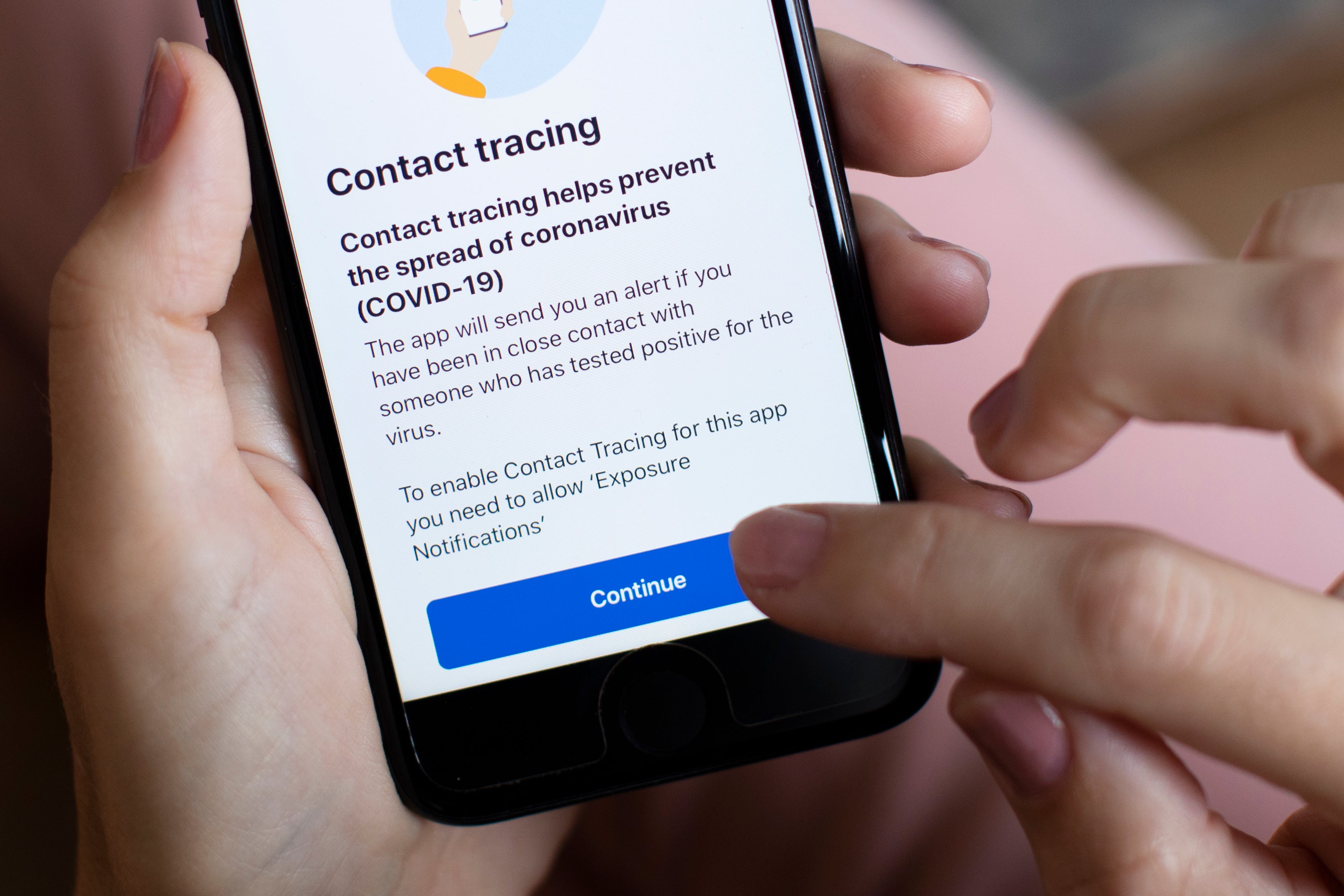
Your support helps us to tell the story
From reproductive rights to climate change to Big Tech, The Independent is on the ground when the story is developing. Whether it's investigating the financials of Elon Musk's pro-Trump PAC or producing our latest documentary, 'The A Word', which shines a light on the American women fighting for reproductive rights, we know how important it is to parse out the facts from the messaging.
At such a critical moment in US history, we need reporters on the ground. Your donation allows us to keep sending journalists to speak to both sides of the story.
The Independent is trusted by Americans across the entire political spectrum. And unlike many other quality news outlets, we choose not to lock Americans out of our reporting and analysis with paywalls. We believe quality journalism should be available to everyone, paid for by those who can afford it.
Your support makes all the difference.The long-delayed NHS Covid-19 app has hit fresh trouble after it emerged it could not process tens of thousands of test results in England.
Ministers were under pressure to explain the “extraordinary” failure, affecting tests at NHS hospitals and Public Health England laboratories, which provoked more criticism of the technology.
To add to the embarrassment, the Welsh government said it had avoided the same problem – which came just two days after the app was finally launched, four months later than promised.
The Department for Health and Social Care (DHSC) on Saturday night that developers had fixed the flaw after “working urgently” to tackle the issue, which left people in England whose tests were carried out at the privately run “lighthouse labs” able to input results but not those in NHS settings.
The results are meant to be used to enable the app to carry out contact tracing, the key purpose of the technology to help curb the spread of coronavirus infections
Professor Stephen Reicher, a government adviser, said the “extraordinary” weakness pointed to “centralised privatised cronyism” which was undermining the test and trace system.
“It exemplifies precisely why test and trace continues to fail: the divorce between the new privatised testing system and NHS/Public Health structures,” he tweeted.
“So, fix the app. But that won’t be enough. We need a rapid reset of testing more generally. No more centralised privatised cronyism. Rebuild the system based on trusted local NHS and Public Health.”
Jonathan Ashworth, Labour’s health spokesman, asked: “Have they really launched an app that doesn’t actually link to tests carried out by NHS hospital labs & PHE labs instead only including tests carried out via the outsourced lighthouse lab network??”
On Friday, more than 61,000 processed tests in England were handled by PHE and the NHS, underlining the potential scale of the problem.
It emerged when one concerned user warned, on Twitter, that he could not submit his test results to the app on its launch day, because he did not have a code.
The app’s own account replied, saying: “If your test took place in a Public Health England lab or NHS hospital, or as part of national surveillance testing conducted by the Office for National Statistics, test results cannot currently be linked with the app whether they’re positive or negative.”
While DHSC said the issue had been fixed on Saturday for those who receive a positive test result, it acknowledged there was still no way for people in England to log a negative result.
The Welsh government was quick to point out it had no such problems, saying: “We took the decision to link our all-Wales laboratory testing systems with the NHS Covid-19 app.
“Here you’ll get a code in your test result notifications to enter into the app, whether your result is positive or negative.”
Since Thursday’s launch, some people have complained of being unable to download the app, and that only positive results could be inputted if tests were booked outside the app.
The technology uses the Bluetooth signal in both Apple and Android mobile phones to detect close and sustained contact between users.
But there are also fears it will have little impact unless installed by most of the public. Experts once warned an 80 per cent take-up was needed – but even the most successful apps in other countries have not topped 40 per cent.
It also allows users to check and report symptoms, to book a test, to find out if the result was positive, to check the local risk level and to provide contact details to premises.
A DHSC spokesperson said: “Everyone who receives a positive test result can log their result on the app.
“A minority of people, such as hospital patients, who were unable to log their positive result can now request a code when contacted by NHS Test and Trace to input on their app.”
The ability to log a negative result is being looked at after users said they wanted to be able to do so, DHSC added.
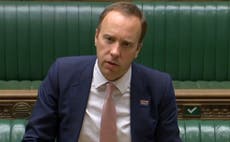
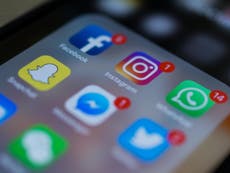
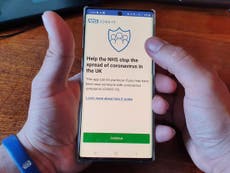

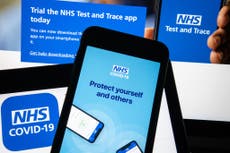

Join our commenting forum
Join thought-provoking conversations, follow other Independent readers and see their replies
Comments